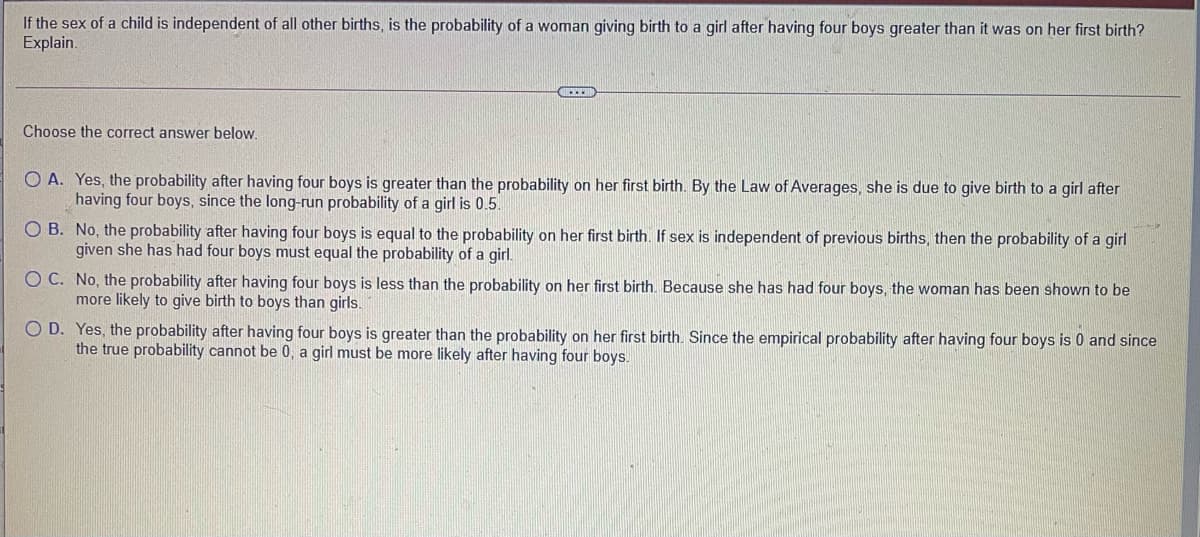below.
Glencoe Algebra 1, Student Edition, 9780079039897, 0079039898, 2018
18th Edition
ISBN:9780079039897
Author:Carter
Publisher:Carter
Chapter10: Statistics
Section10.3: Measures Of Spread
Problem 16HP
Related questions
Question
100%

Transcribed Image Text:If the sex of a child is independent of all other births, is the probability of a woman giving birth to a girl after having four boys greater than it was on her first birth?
Explain.
Choose the correct answer below.
O A. Yes, the probability after having four boys is greater than the probability on her first birth. By the Law of Averages, she is due to give birth to a girl after
having four boys, since the long-run probability of a girl is 0.5.
O B. No, the probability after having four boys is equal to the probability on her first birth. If sex is independent of previous births, then the probability of a girl
given she has had four boys must equal the probability of a girl.
O C. No, the probability after having four boys is less than the probability on her first birth. Because she has had four boys, the woman has been shown to be
more likely to give birth to boys than girls.
O D. Yes, the probability after having four boys is greater than the probability on her first birth. Since the empirical probability after having four boys is 0 and since
the true probability cannot be 0, a girl must be more likely after having four boys.
Expert Solution
This question has been solved!
Explore an expertly crafted, step-by-step solution for a thorough understanding of key concepts.
Step by step
Solved in 2 steps with 2 images

Recommended textbooks for you

Glencoe Algebra 1, Student Edition, 9780079039897…
Algebra
ISBN:
9780079039897
Author:
Carter
Publisher:
McGraw Hill

Holt Mcdougal Larson Pre-algebra: Student Edition…
Algebra
ISBN:
9780547587776
Author:
HOLT MCDOUGAL
Publisher:
HOLT MCDOUGAL


Glencoe Algebra 1, Student Edition, 9780079039897…
Algebra
ISBN:
9780079039897
Author:
Carter
Publisher:
McGraw Hill

Holt Mcdougal Larson Pre-algebra: Student Edition…
Algebra
ISBN:
9780547587776
Author:
HOLT MCDOUGAL
Publisher:
HOLT MCDOUGAL
